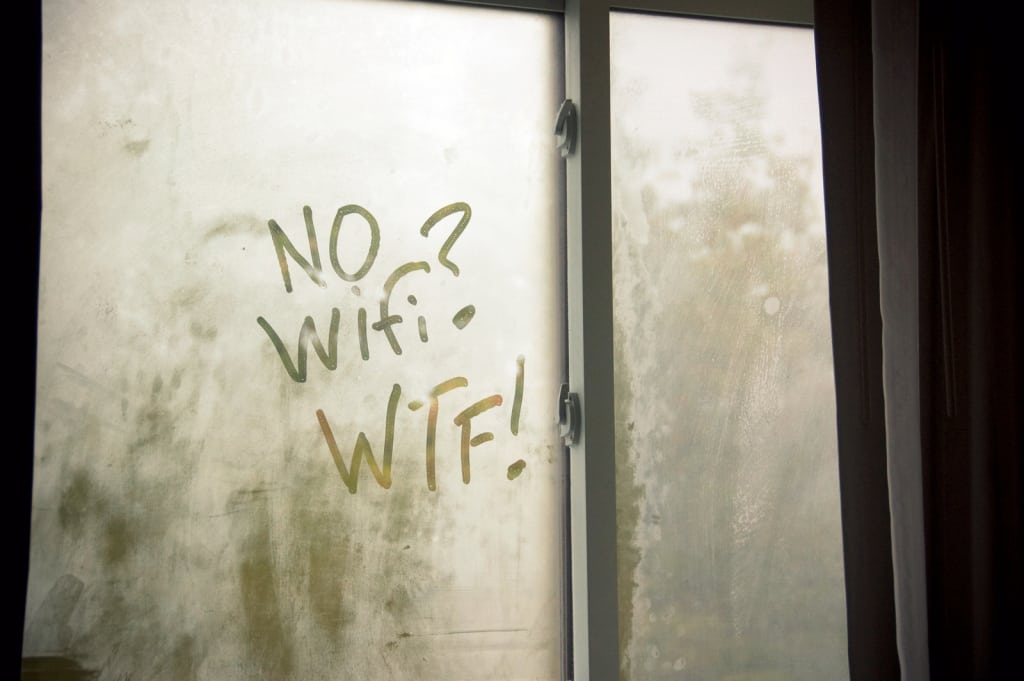Skift Take
Fair or not, the modern traveler judges hotels by their Wi-Fi forwardness. The American hotel industry has everything to lose and nothing to win in this fight, even if it wins a ruling by FCC.
No good will come out of this.
The American hotel industry could not have picked a worse issue to put its weight against. At stake is protecting a relatively minuscule revenue line while losing the battle in the court of public opinion in every possible way.
Here’s the issue at stake: Should guests be forced to use a hotel property’s Wi-Fi network or should they be allowed to bring their own? Whatever the result of this battle, it is guaranteed to be one of those cases where even if the hotel industry wins an official ruling in its favor, it will lose every ounce of customer goodwill it has accrued.
So lets unpack this a little. Last year one of Marriott’s properties was caught jamming conference attendees’ own Wi-Fi networks at one of its hotels in the U.S., and the Federal Communications Commission (FCC) ended up penalizing it $600,000 for the offense, with the logical (and legally right) conclusion that people who purchase cellular data plans (and resultant Wi-Fi connections through them) should be able to use them without fear that their personal connection will be blocked.
After losing this one small battle — with lots of negative press coverage — Marriott in all its “Travel Brilliantly” bravado went ahead and banded up with the American Hotel & Lodging Association (AH&LA) and subsequently petitioned the FCC asking for a declaratory ruling or a rulemaking that would effectively endorse the practice that Marriott got fined for.
Their rationale? Hotels should be allowed to block other Wi-Fi networks on the basis of both reliability (fear of network congestion) and cybersecurity (fear of cyber attacks) reasons.
At the time of the petition, Hilton joined the battle with Marriott and AH&LA. Opposing them are tech companies like Google and Microsoft, who filed comments with FCC arguing that the current law bars such jamming efforts and also harm consumers.
Meanwhile, as the overwhelmingly negative press and social media comments keep flowing in, the general public is now chiming in with complaints to FCC, where everyone from general travelers, conference organizers, and loyal Marriott customers have opposed this potential move by the hotel industry.
So it is time for hotel industry to get this straight: the details of the industry argument don’t really matter. No one really cares about the hotel industry’s clarification that this practice of Wi-Fi jamming won’t affect hotel rooms or lobbies, but only the conference areas. No one will buy the security concerns, however legitimate they may be.
Maybe the hotel industry needs to look at its own consumer reviews and surveys of all kinds: Every consumer survey ever done about hotel stay satisfaction over the last few years overwhelmingly boils down to satisfaction with hotel Wi-Fi availability. Everyone wants it fast and everyone wants it free. The adjunct issue they care deeply about is getting a proper cell signal for their phones and their own Wi-Fi services, which is why hotels end up installing cell-signal boosters.
This stands in stark contrast to the early days of pervasive cellphone use when many hotels were accused of blocking cell connections in order to continue reaping profits from in-room phone usage.
Hotel consumers hate no, slow, or expensive Wi-Fi, and they hate cell dead zones. Check any hotel review on TripAdvisor. It doesn’t matter how great the hotel is, if anything happens to the Wi-Fi or cell signal, consumers freak out. Fair or not, this is what moves consumer opinion in this digital-is-utility age.
For this Wi-Fi jamming issue, outside of general leisure travelers you can bet it will piss off business travelers, the corporations that buy rooms for their employees, the conference planners, and the conference organizers. There is literally no constituency that will be happy except hotels themselves, and possibly the Wi-Fi providers to these hotels.
In face of overwhelming consumer bile against any hint of Wi-Fi tampering or jamming, the details are and will continue to get lost, and the hotel industry will continue to lose its goodwill every day they continue with this FCC petitioning.
So here’s our one-line advice to the American hotel industry: Let it go.
Have a confidential tip for Skift? Get in touch
Photo credit: A customer leaves a message on the window of a Sheraton hotel room, in frustration. Regan Wright / Flickr
